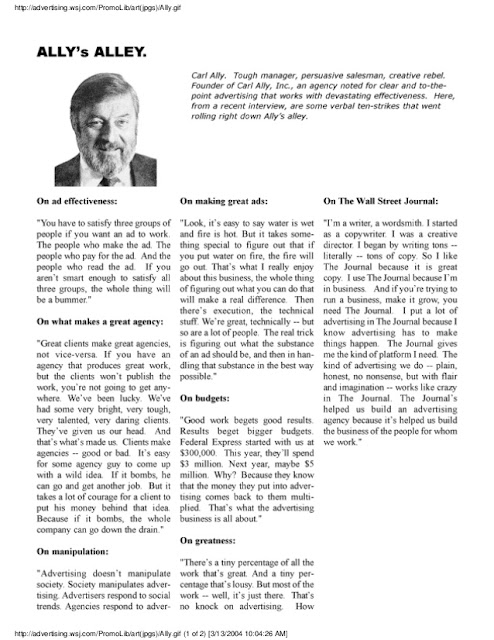-->
Years and years ago, I often found myself in the presence of the great Chris Wall, who rose to become a Vice Chairman at Ogilvy. Chris had a way of cutting through acres of bullshit like no one I had ever seen. And he had a track record that added strength to his brusqueness.
In any event Chris and I had been put on an HR committee to re-write review forms for the creative department. These sorts of things are usually written by people who have no idea about what kind of people creative people are. Consequently, creatives are evaluated on things like how well they get along, how they ‘build bridges,’ and how sunny their dispositions are.
These attributes have very little to do with getting your job done—which is creating, selling and producing good work, not making friends. Sure, you shouldn’t be a prick in getting it done, but you needn’t be Little Mary Sunshine, either.
I was going back and forth with HR, trying to get some criteria that spoke to the creative mindset without potentially alienating everyone else in the agency. Chris sat next to me, brooding. This went on for about 45 minutes.
Finally, all 6’10” of Chris got up. He said one thing, and then he walked out of the room. He said “there’s one way to evaluate creative people. It’s Friday afternoon and the pitch is Monday. Do you want them in on the weekend working?”
Chris’ measurement has stayed with me because it is so precise and complete.
One of the things people in careers must do is manage their own advancement—their own development. Sure, there are whole departments that ostensibly do this for you now. But who’s more interested in your career than you? It would be like having a plumber look at your pipes every nine months. You know better than he when they’re clogged.
If you’re working in an agency, it’s the one question you should ask yourself about how you’re doing. When it’s crunch-time, do you come through with the goods with a minimum of hassle and strife? Can you be counted on for coming in with great creative? Can you pool out someone else’s campaign and add to it? Can you make a deck? Can you do the thousand other un-defined things that need doing when push comes to shove?
If you’re minding your career, fill out the forms they tell you to. And do your best to toe the lines technocrats tell you to toe. If you’re abrasive, self-destructive and cynical like so many creatives, try to keep a lid on those things as much as you humanly can without subsuming your essential humanness.
But mostly ask yourself the question that needs asking. “It’s Friday afternoon and the pitch is Monday. Does your boss want you in on the weekend working?”









